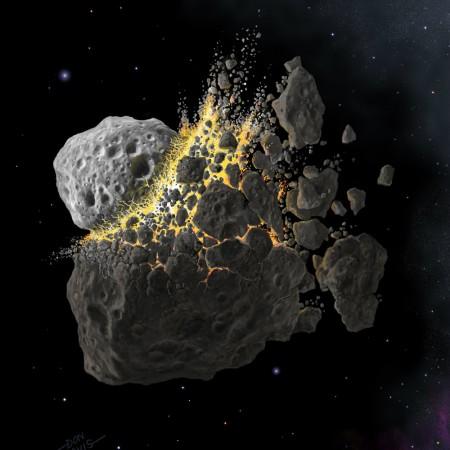
It was around 66 million years ago that a doomsday asteroid collided with the earth, which resulted in the extinction of dinosaurs. Since then, several asteroids have hit the earth but none of them were capable of triggering a catastrophe on a global level.
However, scientists are sure that devastating asteroid hits are not confined to the past and will happen in the future too. In order to combat such a devastating scenario, NASA, the United States space agency, is now busy developing a planetary defence weapon to protect the earth from dangerous asteroid hits.
In the meantime, Lembit Öpik, the Chairman of Parliament for the space nation Asgardia, has revealed that the chance of a doomsday asteroid impact in the future is 100 percent. Opik made these remarks while talking exclusively to Express.co.uk.
"It's a matter of life and death. The chance of an impact is 100 percent, you just don't know when. This happens very rarely, but when it happens it's catastrophic and it will wipe out between 70 and 95 percent of all life. That's what seems to have happened before," said Opik.
Opik added that the primary objective of Asgardia is to protect planet earth from devastating asteroid hits that may happen in the future. He even made it clear that they are trying hard to establish a permanent human base in the space and to conceive the first off-world child.
Asgardia, popularly known as the Space Kingdom of Asgardia, is touted to be the world's first micronation after they launched a satellite into space in 2016.
This is not the first time that a top space expert is sharing worries about a possible space rock hit in the future. A few months back, Dr Iain McDonald, a top scientist at the Cardiff University's school of earth and ocean sciences, had predicted that earth will one day hit a doomsday asteroid for sure. As per McDonald, devastating asteroid hits have happened in the past and it will repeat in the future too.

















